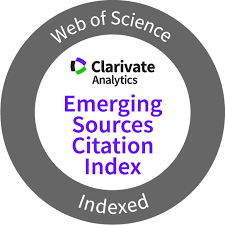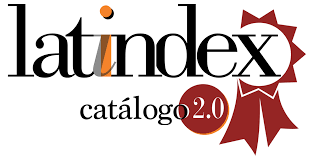A comunicação pública digital da Câmara Municipal de Itapevi no Facebook e as possibilidades de letramento político / The digital public communication of the Municipality of Itapevi on Facebook and the possibilities of political literacy
DOI:
https://doi.org/10.5783/revrrpp.v11i22.719Keywords:
Câmara Municipal de Itapevi, Letramento Político, Comunicação Pública, Facebook.Abstract
O estudo objetiva apresentar uma análise da página da Câmara Municipal de Itapevi – São Paulo (Brasil), observando dez das 683 postagens realizadas entre janeiro e dezembro de 2019, quando o perfil da instituição teve um crescimento no número de seguidores, para observar a existência de elementos do letramento político na comunicação praticada pela instituição. A investigação está concentrada em identificar elementos que possam contribuir com conhecimento do cidadão e grupos sobre o processo legislativo, participação, cidadania, entre outros temas centrais que atraíram a atenção dos seguidores na página. O levantamento quantiqualitativo indica que a página da Câmara possui um potencial para fomentar o debate de pautas do interesse público e de estimular a participação cívica das pessoas.
Palavras clave: Câmara Municipal de Itapevi, Letramento Político, Comunicação Pública, Redes Sociais, Facebook
Abstract
The following study seeks to understand how the Facebook page of the City Council of Itapevi, Brazil, made political literacy possible through political education, discussions on the political agenda, and mobilization in its communication on the social network. The corpus of the analysis brings together 683 publications made in 2019, a period in which the page showed an increase in audience compared to the previous year (2018). The quantitative research, though with a qualitative look, identified posts that made political knowledge possible to the citizen, as well as interviews to understand the use of the social network by the institution. An appropriate analysis to understand the use of the network by the public body, since the latest survey by DataSenado shows that 74% of Brazilians have or have had a social network - Facebook, Whatsapp, Instagram, or Twitter. A significant number, especially when compared to data from the Brazilian Institute of Geography and Statistics (IBGE), from 2019, indicates that two-thirds of the country's population (69.8%) have an internet connection. These numbers drive the research of communicologists and political scientists, who seek to understand how this communication network is being part of people's daily lives. Mainly taking into account that the internet, and especially social networks, are becoming a space where different people connect, share content and participate in the political debate a few clicks away. The internet's expansion in Brazil and the number of people connected to networks made different public bodies create profiles on social networks to interact with people. A new channel that aims to establish a rapprochement with this digital audience, ensure transparency in management and encourage the participation of everyone in the decision-making process. As occurred at the City Council of Itapevi (CMI, in Portuguese). However, to guarantee a minimum of success in this digital endeavor, the information available on the networks must be of public interest and its content must be accessible, allowing citizens to understand how public authorities work and to know the process of choosing representatives. A knowledge that can be shared with the citizen through political literacy, as highlighted by Cosson (2016: 51): “these are knowledge related to the functioning of the State, with an emphasis on democratic mechanisms, which involves, on one hand, a knowledge about elections, parties and institutions, and on the other hand, the rights and duties of the citizen”. Therefore, the article was divided into four parts, in addition to the final considerations. The first seeks to clarify the difference between public and political communication; the second addresses how Facebook has supported CMI's communication strategy. Furthermore, there is a literature review on political literacy. Finally, the objective of this study: an analysis of the possibility of political literacy through publications made on the CMI profile on Facebook, in 2019, which concludes that the page is a virtual space for debate and public expression in the city, with growth potential for the promotion of citizenship and political knowledge. The study is based on publications in the areas of public communication (Matos, 2000; Marques, 2011; Correia, Ferreira y Santo, 2010), social networks (Recuero, 2010; Ferrari, 2010, Silva, 2017), and political literacy (Cosson, 2020; Biesta, Lawly e Kelly 2009).
Keywords: Itapevi City Council, Political literacy, Public communication, Social networks, Facebook
Downloads
References
BANKS, J.; MCGEE, CH. A.; CORTES, C.E.; HAHN, C.L.; MERRYFIELD, M.M.; MOODLEY, K.A.; MURPHY-SHIGEMATSU, S.; OSLER, A.; PARK, C. & PARKER, W.C. (2005) Democracy and diversity. Principles and concepts for educating citizens in a global age. Seattle: Centre for Multicultural Education- University of Washington. Acesso em: 15 mai. 2021. Disponível em: http://www.depts.washington.edu/centerme/DemDiv.pdf.
BIESTA, G.; LAWLY, R. Y KELLY, N. (2009). Understanding young people´s citizenship learning in everyday life: the role of contexts,relationships and dispositions. Education, Citizenship and Social Justice, 1 (4), 5-24. https://doi.org/10.1177/1746197908099374
CANEL, M. J. (1999). Comunicación política: una guía para su estudio y práctica. Madrid: Tecnos.
CARVALHO, J. S. et al. (2004). Formação de professores e educação em direitos humanos e cidadania: dos conceitos às ações. Educação e Pesquisa, 30 (3), 435-445. https://doi.org/10.1590/S1517-97022004000300004.
CLEMENTE A. (2015). Os senadores e o Facebook: uma análise sobre a presença dos parlamentares na rede social. Acesso em: 15 mai. 2021. Disponível em: https://www2.senado.leg.br/bdsf/handle/id/516856.
CORREIA, J. C.; FERREIRA, G.B. Y SANTO, P. (2010). Conceitos de comunicação política. Acesso em: 15 mai. 2021. Disponível em: https://labcom.ubi.pt/ficheiros/correia-conceitos-2010.pdf.
COSSON, R. (2011). Letramento Político: trilhas abertas em um campo minado. E-Legis, 7 (4), 49-58. https://doi.org/10.51206/e-legis.v7i7.90
COSSON, R. (2016a). Letramento Político: A Perspectiva do Legislativo. Brasília: Edições Câmara.
COSSON, R. (2016b). Letramento literário: teoria e prática. São Paulo: Contexto.
CRICK, B. (1998). Education for citizenship and the teaching of democracy in schools: final report of the advisory group on citizenship. London: QCA.
DAMASCENO, M. (2015). O papel da assessoria de imprensa no legislativo municipal: estudo de caso - câmara municipal de Itapevi. Acesso em: 15 mai. 2021. Disponível em: http://www.saopaulo.sp.leg.br/escoladoparlamento/wp-content/uploads/sites/5/2017/09/marcelo-sim%c3%95es-damasceno-o-papel-da-assessoria-de-imprensa-no-legislativo-municipal-estudo-de-caso-c%c3%82mara-municipal-de-itapevi.pdf.
DAHLGREN, P. (2011) As culturas cívicas e a internet para uma contextualização da participação política. Revista Media & Jornalismo, 18 (10), 11–30. http://fabricadesites.fcsh.unl.pt/polocicdigital/wp-content/uploads/sites/8/2017/04/18artigo-1.pdf.
DEWEY, J. (1959). Democracia e educação: introdução à filosofia da educação. São Paulo: Nacional.
DUARTE, J. (2009). Instrumentos de comunicação pública. In: DUARTE, J. (Org.). Comunicação pública: Estado, mercado, sociedade e interesse público. 2ed. São Paulo: Atlas.
FERRARI, P. (2010). A força da mídia social – interface e linguagem jornalística no ambiente digital. São Paulo: Factash Editora.
FIGUEIREDO, R. (2008). Marketing político em tempos modernos. Rio de Janeiro: Konrad-Adenauer-Stifung.
GALSTON, W. A. (2001). Political knowledge, political engagement and civic education. Annual Review of Political Science, (1) 4, 217-234. https://doi.org/10.1146/annurev.polisci.4.1.217
MARQUES, Â. C. (2009) As interseções entre o processo comunicativo e a deliberação pública. In: MARQUES, Â. C. (Org.). A deliberação pública e suas dimensões políticas comunicativas: textos fundamentais. (pp.11-28). Belo Horizonte: Autêntica Editora.
MATOS, H. (2000). Ação política e propaganda eleitoral. Comunicação e Educação, 19 (VII), 25-31. https://doi.org/10.11606/issn.2316-9125.v0i19p25-31
POZOBON, R. (2011). Democracia mídia e comunicação pública. In: KUNSCH, M. (org.). Comunicação pública, sociedade e cidadania (pp.171-185). São Caetano Sul: Difusão Editorial.
RIBEIRO, J. U. (2010). Política: quem manda, por que manda, como manda. Rio de Janeiro: Objetiva.
RECUERO, R. (2010). Redes Sociais na Internet. 2ª edição. Porto Alegre: Sulina.
SILVA, M. (2017). A comunicação institucional do Senado Federal no Facebook e as possibilidades de letramento político. Intercom – Sociedade Brasileira de Estudos Interdisciplinares da Comunicação, 40º Congresso Brasileiro de Ciências da Comunicação – Curitiba - PR . https://portalintercom.org.br/anais/nacional2017/resumos/R12-3141-1.pdf>.
SOARES, M. (1998). Letramento: um tema em três gêneros. Belo Horizonte: Autêntica.
SANTAELLA, L. (2002). Comunicação e pesquisa. São Paulo: Hacker Editores.
Downloads
Published
How to Cite
Issue
Section
License
Authors publishing in this journal agree to the following terms:
a. Authors retain copyright and grant the journal the right to be the first publication of the work as licensed under a Creative Commons Attribution License that allows others to share the work with an acknowledgement of authorship of the work and initial publication in this journal.
b. Authors may separately enter into additional arrangements for non-exclusive distribution of the version of the work published in the journal (e.g., placing it in an institutional repository or publishing it in a book), with an acknowledgement of initial publication in this journal.
c. Authors are allowed and encouraged to disseminate their work electronically (e.g. in institutional repositories or on their own website) before and during the submission process, as it can lead to productive exchanges, as well as earlier and higher citation of published work (see The Effect of Open Access).




